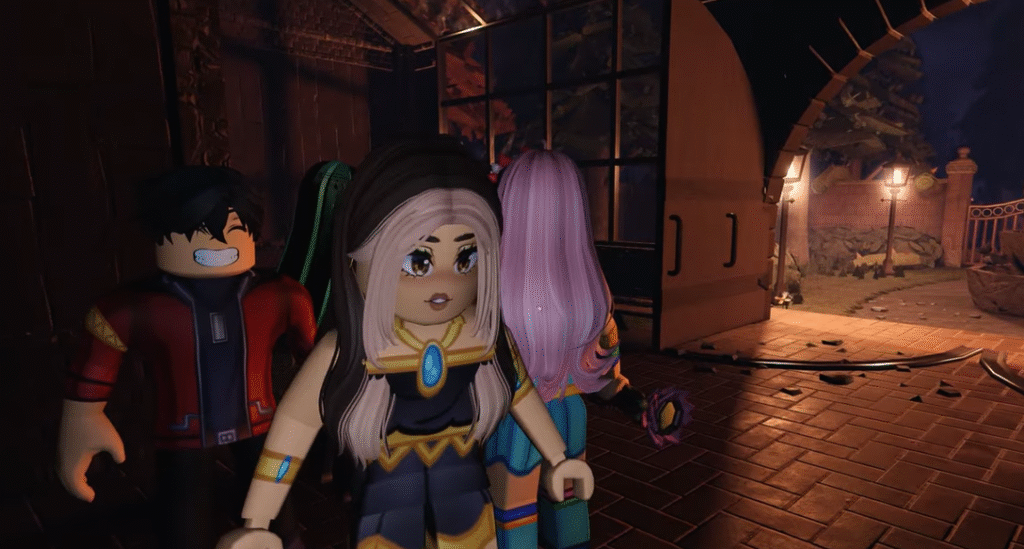The Roblox lawsuit from Louisiana has swept through the gaming industry like a lightning strike, sparking discussions outside of courtrooms. Attorney General Liz Murrill charges the business with willfully allowing dangerous areas where predators could flourish, implying that it neglected the security of its youngest players in its quest for profit and scale. This case raises serious concerns about whether the safeguards Silicon Valley promised are adequate, as over half of Roblox’s enormous 112 million daily users are minors.
The accusations are remarkably grave. Experiences like “Escape to Epstein Island” and “Diddy Party” are highlighted in reports; these bizarre titles highlight how offensive content can evade moderation. Both legislators and parents have presented these instances as signs of more serious carelessness. Critiques of other tech giants for allegedly treating children as collateral damage in their haste for growth are echoed in this uncannily familiar story. Roblox is currently the center of outrage, much like Facebook and YouTube were the targets of intense firestorms due to their dangerous content.
But Roblox isn’t doing nothing. The business firmly referred to the charges as “simply untrue” in a statement, emphasizing that malicious actors constantly change and move between platforms in order to avoid detection. With over 40 new features added in the last year alone, it maintains that its safety infrastructure is especially cutting edge. These include enhanced parental controls, sophisticated chat filters, more stringent settings for users younger than 13, and tools that use selfie verification to estimate age. The business contends that these actions show an exceptionally successful, if not flawless, dedication.
Roblox Louisiana Lawsuit
Key Information Table
| Detail | Information |
|---|---|
| Case | Roblox Louisiana Lawsuit |
| Plaintiff | Louisiana Attorney General Liz Murrill |
| Defendant | Roblox Corporation |
| Allegations | Failure to protect children, enabling exploitation, prioritizing profits over safety |
| Daily Active Users | 112 million globally (approx. 82 million under 18) |
| Founded | 2004 by David Baszucki and Erik Cassel |
| Headquarters | San Mateo, California |
| Industry | Online Gaming & User-Generated Content |
| Reference | Roblox Corporate Response |

Trust is at the center of this dispute. Parents are divided between appreciating Roblox’s creative potential and worrying that there are more serious dangers hidden beneath its lighthearted exterior. Roblox has made significant safety improvements, according to the Family Online Safety Institute, which has called some of its restrictions superior to those of other social media sites. However, Louisiana’s lawsuit maintains that these actions are still insufficient and only address a growing issue.
The cultural repercussions of this debate are what fuel it. One of the flagged experiences mentioned Epstein, which brought up memories of high-profile scandals and child safety violations. Online critics even likened Roblox’s purported carelessness to media and Hollywood failures, where entertainment companies used to put their bottom line ahead of the welfare of young viewers. In this way, Roblox is being judged on whether its fantasy settings jeopardize the safety of kids, a stage that was previously occupied by Disney and Nickelodeon.
The chorus has been joined by political voices. California Representative Ro Khanna has urged Roblox to be more accountable and has called for tighter federal regulation of websites that target or draw in minors. His remarks demonstrate how the Louisiana case might spread beyond a single state and influence national discussions, potentially leading to more lawsuits or even legislative action. Roblox might have to navigate a similarly turbulent sea of litigation, much like Meta’s handling of teen mental health prompted state lawsuits across the nation.
The stakes for Roblox’s finances and reputation are extremely high. Although 64 percent of its users are now 13 years of age or older, its identity is still deeply anchored in the fantasy of children. Any decline in parental trust could drastically limit the platform’s potential for growth, especially as it looks to reach older audiences and establish itself as a center for immersive online experiences. Roblox’s stock has already experienced tremors since the lawsuit was announced, according to market watchers, demonstrating how safety narratives have a significant impact on investor confidence.
This legal dispute also sheds light on larger societal concerns. The lives of today’s kids are dominated by technology, and friendships and adventures frequently take place on screens. Parents used to worry that television would stifle creativity or negatively influence values; these concerns are now resurfacing in relation to Roblox, TikTok, and gaming ecosystems. Roblox, a platform where kids can create their own interactive environments and learn STEM skills, represents both tremendous potential and possible vulnerability. The conundrum is obvious: a single platform with a wide range of applications but contentious risks.
As a result, the case has evolved beyond a state-level filing to become a cultural mirror reflecting unresolved conflicts surrounding technology, childhood, and accountability. Should parents, equipped with parental controls, be solely responsible for monitoring? Should businesses like Roblox be compelled, at all costs, to create virtual environments where predators can hardly exist? Or should legislators set more stringent limits with rules that require responsibility? Louisiana’s lawsuit highlights how unequal that balance has been up until now, even though it implies that the solution lies in shared responsibility.
Roblox has a decision to make as this case develops. It can become a leader by embracing reform and transparency and relying on its alliances with advocacy groups, law enforcement, and child safety organizations. Alternatively, it may present itself as unfairly singled out, a victim of political scheming, which could exacerbate family mistrust. In addition to defining its reputation, its response might establish standards for the whole gaming sector.

